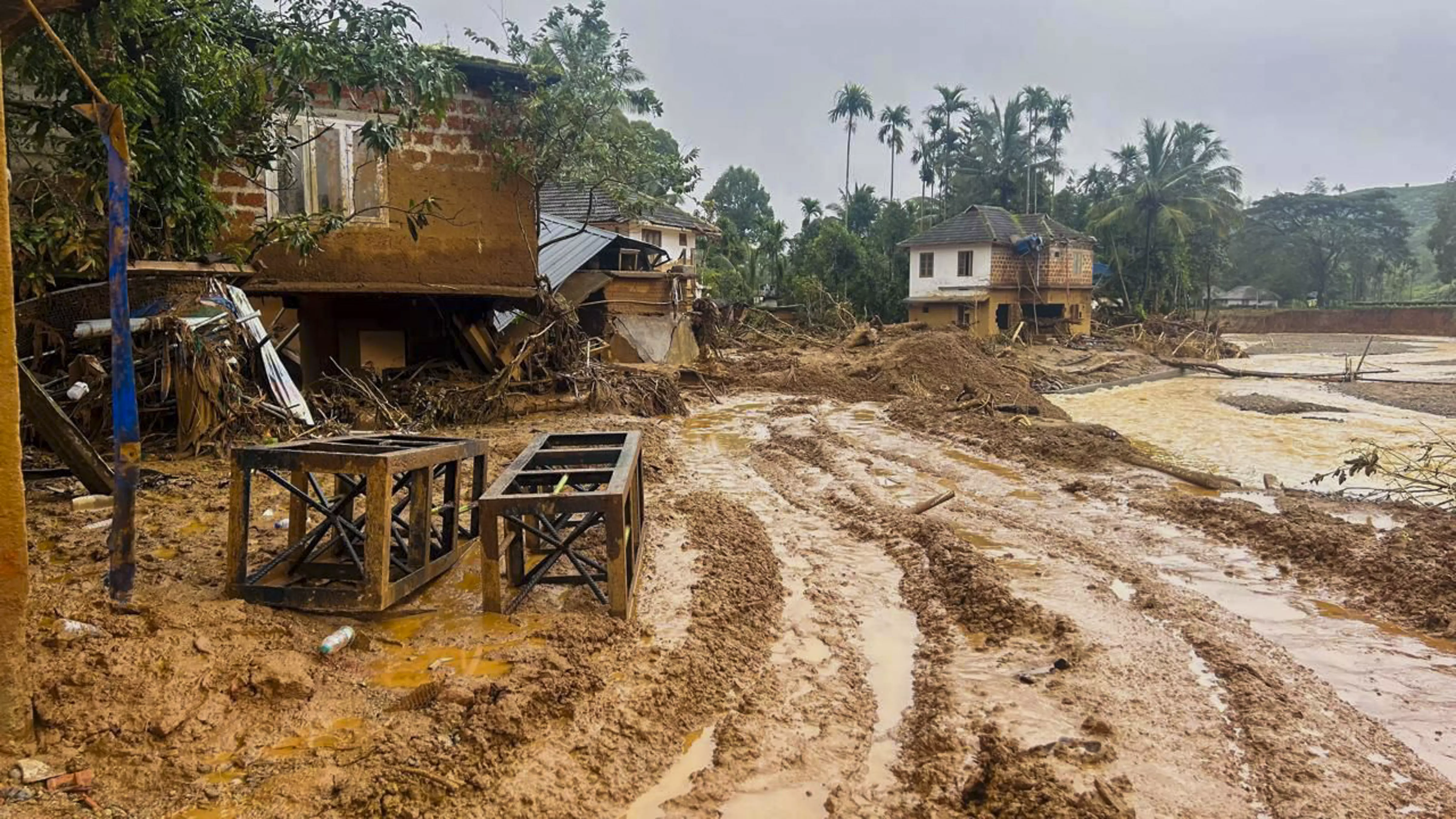
Wayanad landslides | Not rain, main reason quarries, human activities: Gadgil
Scientist blames long-term “human intervention”, such as quarrying activities and reckless construction of roads, railways and housing, for Kerala disaster

The immediate reason for the Wayanad landslides may have been heavy rainfall, but the “primary” reasons include long-term “human intervention”, such as quarrying activities along with fudged data to conceal the extent of such activities, scientist and ecologist Dr Madhav Gadgil has said in a media interview.
In an interview to Rediff.com, Gadgil — who had warned of devastating natural calamities in the Western Ghats in 2010 itself, a report the states of Kerala, Tamil Nadu, Karnataka, Maharashtra, and Gujarat dismissed as impractical and overly environment-friendly — pointed out the role of rock quarries in the Wayanad calamity.
“Quarries disturbed rock structure”
Gadgil said in the interview that those rock quarries, close to the landslide-hit area, were responsible for causing disturbance to the entire rock structure of the region because of the shockwaves sent by the blasting. The rock structure becomes more fragile as a result, a process that has been going on relentlessly for years. As a result, a disaster like the current one was in the making for the past decade, he explained.
Not only that, the government has been fudging data about the actual number of quarries in the region, he alleged. He cited the example of Koottickal village, where the government claims there are only three rock quarries. According to Gadgil, Google Maps shows 10 times as many rock quarries in the area — 30. Heavy rainfall simply triggers what was already waiting to happen.
How Western Ghats are being destroyed
Gadgil also pointed out that historical records says that there were no landslides in the Western Ghats in the 1600s. The frequency of landslides in the Ghats of Maharashtra has risen 100-fold, says the research of a Pune-based geologist, he added. Gadgil attributed this to “reckless construction of roads, railways and housing”.
Regarding the burgeoning construction on houses in the Western Ghats, he said those are not being built for the poor but those are second and third homes for the rich.
He also cited the example of Vidarbha, where the much-touted Samruddhi Expressway cuts through a major hillock next to a village, resulting in the drying up of springs and ponds. Not only has irrigation been affected, hyenas are now straying into the villages in search of drinking water and attacking children.
The Gadgil report
Gadgil, who headed the Western Ghats Ecology Expert Panel (WGEEP) set up by the Union environment and forests ministry in 2010 to chalk out a conservation strategy for the fragile Western Ghats ecology, had made recommendations that the states housing the Ghats difficult to stomach.
Among the recommendations was for several areas in Kerala to be classified as ecologically sensitive. In fact, the Gadgil report had recommended that the entire Western Ghats be notified as Ecological Sensitive Areas (ESAs), which the states found outrageous. Subsequently, the Kasturirangan Committee followed in 2012, and promptly reduced the recommended area to be declared as ESAs to 37 per cent.
Warnings fell on deaf ears
Even after the devastating Kerala floods in 2018, Gadgil sounded another warning about more natural disasters in Kerala in future — which, of course, fell on deaf ears again. The scientist told Rediff.com without mincing words thar the nation “is being ruled by people who…support muddied interest. They care a damn about the livelihood and lives of common people”.
He also cited the case of the fishermen who are “deprived of fisheries because of pollution and the pollution department gives false data as if there is no pollution”. And if they protest, the government sets the police on them, Gadgil pointed out.
Report was empirically valid, politically incorrect
Regarding the criticism of his report — disregard for which seems to have cost Kerala dear — Gadgil asserted that everything he wrote in that report was “grounded and written in careful observation.…the report is empirically valid though politically it may not be correct”.
He also pointed out how Kasturirangan had made a veiled statement suggesting that the local communities have no say in the economic decision-making that affect them directly. Gadgil explained that, for instance, if a quarry is triggering landslides and killing the local people, they have no right to protest against it.
Gadgil also asserted that he never expected his report to be accepted but is “satisfied” that it “played a role in highlighting what is going on and has brought it to the notice of the people of India”, which is why it is being discussed even 13 years later.
Can things be reversed?
But what now? How can things be reversed? Gadgil told Rediff.com that the first step would be to become a “law-abiding country” from a “lawless society”. Rock quarries and mining activities need to be stopped the Western Ghats at once.
Even if mining is done, it has to be done carefully, so that there is no damage to the environment, and also generate employment for locals. Industrial development cannot come at the cost of polluting water bodies in coastal areas, destroying the fishing industry and the livelihoods of fisherfolk.

